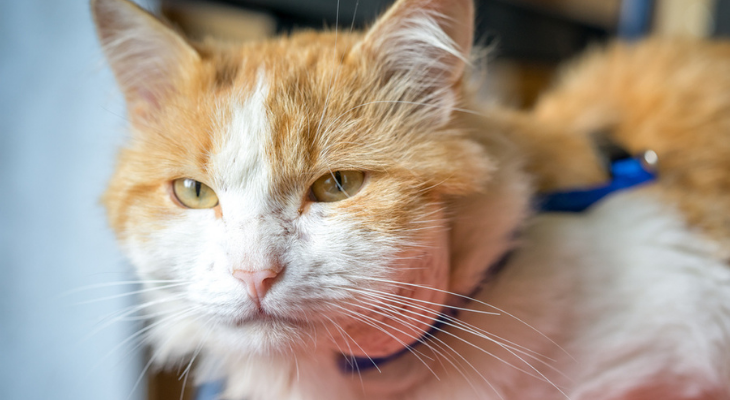
Identifying and Treating Abscesses in Pets
Abscesses are caused by bacterial infections that can make your pet very sick. Unfortunately, unlike people, pets don't usually complain when they're hurt or don't feel well. In fact, you may not be aware that your pet isn't well until symptoms become severe.
Learning about abscess risk factors and symptoms can help you spot the signs of the infection and get your pet to the veterinarian as soon as possible.
What Do Abscesses Look Like?
A strange swelling or lump on your pet's body may be an abscess. Abscesses may hide under your pet's fur and be hard to spot. If the abscess bursts, you may see oozing pus on your furry friend's body or smell a bad odor. Abscesses can also form deep inside the body where they can't be seen.
How Do Pets Get Abscesses?
Abscesses can have many causes. Your pet may have been injured if it tangled with a wild animal or had a fight with one of your other pets. Breaks in the skin from scratches or bites, even small ones can get infected if bacteria enters the wounds. (Rough play fighting could also lead to scratches or cuts that become infected.)
Some pets are more likely to develop abscesses than others. English Bulldogs, Labrador Retrievers, and Chinese Shar-Pei are at increased risk. These breeds have short hairs that can become ingrown easily, according to Dogtime.
Other causes of abscesses include:
- Impacted anal glands
- A damaged or decayed tooth
- Blood infections
- Sinus or ear infections
- Pneumonia
What Are the Signs of Abscesses?
Abscess signs vary depending on the location of the abscess. In addition to pus or a foul smell, you may notice:
- Redness. The skin around a crusted-over wound may look red and feel warm.
- Licking. Your pet may constantly lick the abscessed area, which can cause hair loss.
- Fever. The bacterial infection that caused the abscess could cause your pet's temperature to rise.
- Coughing. Coughing and trouble breathing could be signs that your pet has a lung abscess.
- No Appetite. When you have an infection and feel awful, food probably doesn't seem very appetizing. Your pet may feel the same way.
- Facial Swelling. A tooth abscess could cause a lump under your pet's eye or on the lower jaw, depending on the location.
- Scooting. If an impacted anal gland becomes abscessed, your pet may scoot its bottom along the floor or ground in an attempt to relieve the pain and pressure.
- Pain. Abscesses can be painful, particularly if they get in the way when your pet walks or moves. If the abscess affects a limb, your pet may begin to limp.
- Fatigue. Your pet may seem much more tired than usual due to the infection.
How Are Abscesses Treated?
If the abscess hasn't broken open on its own, your veterinarian will perform a minor surgical procedure to drain the pus. Antibiotics will also be needed whether the abscess burst or the veterinarian drained it. The medications kill bacteria and prevent the infection from spreading throughout your pet's body. In some cases, your pet may also need intravenous (IV) fluids or anti-inflammatory medication.
When a diseased or damaged tooth is the source of the infection, your veterinarian will remove the tooth and treat the infection underneath.
How Can Abscesses Be Prevented?
It's not always possible to prevent an abscess, although you can reduce your pet's risk by:
- Treating Wounds Promptly. If you notice that your pet has an open wound, clean the area with warm water and apply antibiotic ointment. Take your pet to the veterinarian if the wound is deep or won't stop bleeding.
- Keeping Your Cat Indoors. Fights with other cats are common in outdoor cats. Keeping your pet inside reduces the likelihood that your cat will develop an abscess, be hit by a car, or be accidentally poisoned.
- Expressing Your Dog's Anal Glands. Clogged anal glands can become infected if they're not expressed. Your pet's veterinarian or groomer can express (unblock) the glands or teach you how to do it at home.
- Taking Your Pets to the Veterinarian for Dental Care. Regular dental cleanings remove plaque and tartar and prevent tooth decay. Severely decayed teeth are at risk of developing abscesses.
Do you think that your pet may have an abscess? Call our office to schedule an appointment for your companion?
Sources:
Dogtime: Abscesses in Dogs: Causes, Symptoms, and Treatments
